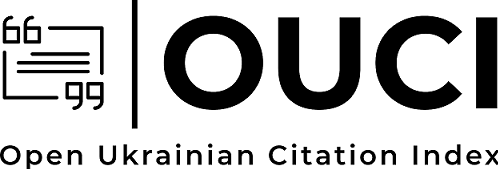HISTORICAL EXPERIENCE OF THE DEVELOPMENT OF THE CZECH REPUBLIC IN THE CONDITIONS OF THE DEMOCRATIC REALITIES OF THE 1990s
DOI:
https://doi.org/10.28925/2524-0757.2019.2.10Keywords:
historical experience, good neighborliness, historical memory, Czech Republic, Slovak Republic, “velvet revolution”, “orange revolution”Abstract
The experience of the Czech Republic and the Slovak Republic is important for Ukraine. The population of Czechoslovakia rethought the values and realities of the communist regime and embarked decisively on the path to building a democratic state. Similarity in the historical path of the Czech and Ukrainian states is, in our opinion, manifested in two revolutions — the Czech velvet and the Ukrainian orange.The historical experience of the development of the Czech independent state in the conditions of democratic realities of the 1990s is revealed. The main stages of the formation of the new democratic state of the Czech Republic are analysed. The problems and threats that arose in the course of the breakup of Czechoslovakia as a state formation and the construction of two new partner countries in the new European policy of the Czech Republic and the Slovak Republic are revealed.The main stages of the transition of the Czech and Slovak Republics to the development of independent states based on democratic values and the steps of the Czech and Slovak societies to mutual understanding and partnership support in further development are shown.The politics of memory in the Czech and Slovak republics in the post-socialist period show how we can change the path of historical progress and political development; to change the negative experience of totalitarianism in the public consciousness in order to avoid in the future those social phenomena that hinder the development of a free civil society. The Czechs and Slovaks presented to all European peoples the way in which two historically close peoples begin a separate independent statesmanship, “divorcing” in a peaceful manner without any substantial claim to each other. The common past, as it turned out in the case of Czechs and Slovaks, does not necessarily imply interdependence in the political space and in the economic plane. Nowadays democratic environment, it is important to support one another as partners and to foster good neighborly relations. Such experience deserves attention from the Ukrainian authorities because it is of great practical importance — a new model of public memory.
Downloads
References
Bartuska, V. (1990). Polojasno: Pátrání po vinících 17. list. 1989. Praha: Exlibris. [in Czech].
Holubchyk, H. (2014). Stanovlennia yevropeiskykh modelei suspilnoi pamiati: instytutsiino-pravovyi aspekt. Derzhavne upravlinnia ta mistseve samovriaduvannia, 3 (22), 97–106 [in Ukrainian].
Kyrydon, A. (2016). Polityka pamiati v umovakh demokratii: vshanuvannia zhertv henotsydiv ta masovykh ubyvstv. Ukraina-Yevropa-Svit, 17, 216–236 [in Ukrainian]. file:///C:/Users/Oksana/Downloads/Ues_2016_17_25%20(1).pdf
Maradyk, N. (2012). Perekhid do demokratii v Cheskii Respublitsi. Uzhorod [in Ukrainian].
Maradyk, N. (2014). Podil Chekhoslovachchyny v konteksti demokratyzatsiinykh protsesiv. Naukovyi visnyk uzhghorodskoho universytetu, 17, 105–109 [in Ukrainian]. https://dspace.uzhnu.edu.ua/jspui/bitstream/lib/675/1/
Meleshchenko, T. V. (2010). Myrne rozdilennia Chekhoslovatskoi Federatyvnoi Respubliky ta pozytsiia Havela u tsiomu protsesi. Hileia, 33, 114–120 [in Ukrainian].
Mücke, P., Vanek, M. (2016). Velvet Revolutions: An Oral History of Czech Society. Oxford University Press [in English].
Prykhodko, V. (1999). “Nizhna revoliutsiia” v Chekhoslovachchyni ta formuvannia novoi vnutrishnioi i zovnishnioi polityky krainy. Uzhghorod [in Ukrainian].
Rykhetskyi, L. (23.12.2014). Zradzhena revoliutsia 1989 roku. Spilne [in Ukrainian]. https://commons.com.ua/uk/zradzhena-revolyutsiya-1989-roku/
Solodkyi, S. (2005). Piat istorychnykh khvylyn. Den, 241 [in Ukrainian]. https://day.kyiv.ua/uk/article/den-planeti/pyat-istorichnih-hvilin
Tkachenko, I. (10.10.2017). Realizatsiia polityky` pamiati v Chekhii ta Slovachchyni v postsotsialistychnyi chas: istorychna spadshchyna, spilni zasady, natsionalni osoblyvosti. Kontrast [in Ukrainian]. http://www.kontrast.org.ua/news/2674.html
V Chekhii bortsi s kommunisticheskim rezhimom poluchat materialnuiu kompensatsiiu. (2011). Рostimees [in Russian]. http://rus.postimees.ee/533624
Volianska, L. (21.11.2011). Revoliutsiia, rozcharuvannia ta represii. Tyzhden [in Ukrainian]. https://tyzhden.ua/Columns/50/35808/
Zadorozhniuk, Ye. (2008). Ot krusheniia Prazhskoi vesny k triumfu «barkhatnoi revoliutsii». Iz istorii opozitsionnogo dvizheniia v Chekhoslovakii (avgust 1968 — noiabr 992 goda). M.: Indrik [in Russian].
Zelenko, H. (2005). “Oksamytova revoliutsiia” yak sposib rotatsii vlady. Suchasna ukrainska polityka, 7, 53–62 [in Ukrainian].
Published
How to Cite
Issue
Section
License
Copyright (c) 2019 Kyiv Historical Studies

This work is licensed under a Creative Commons Attribution-NonCommercial-ShareAlike 4.0 International License.
Authors who publish in this journal retain the right of authorship of the work and give to the journal right of first publication of this work under the conditions of Creative Commons: Attribution-NonCommercial-ShareAlike 4.0 International (CC BY-NC-SA 4.0), which allows others freely distribute the work published with reference to the authors of the original work and the first publication of this magazine.














